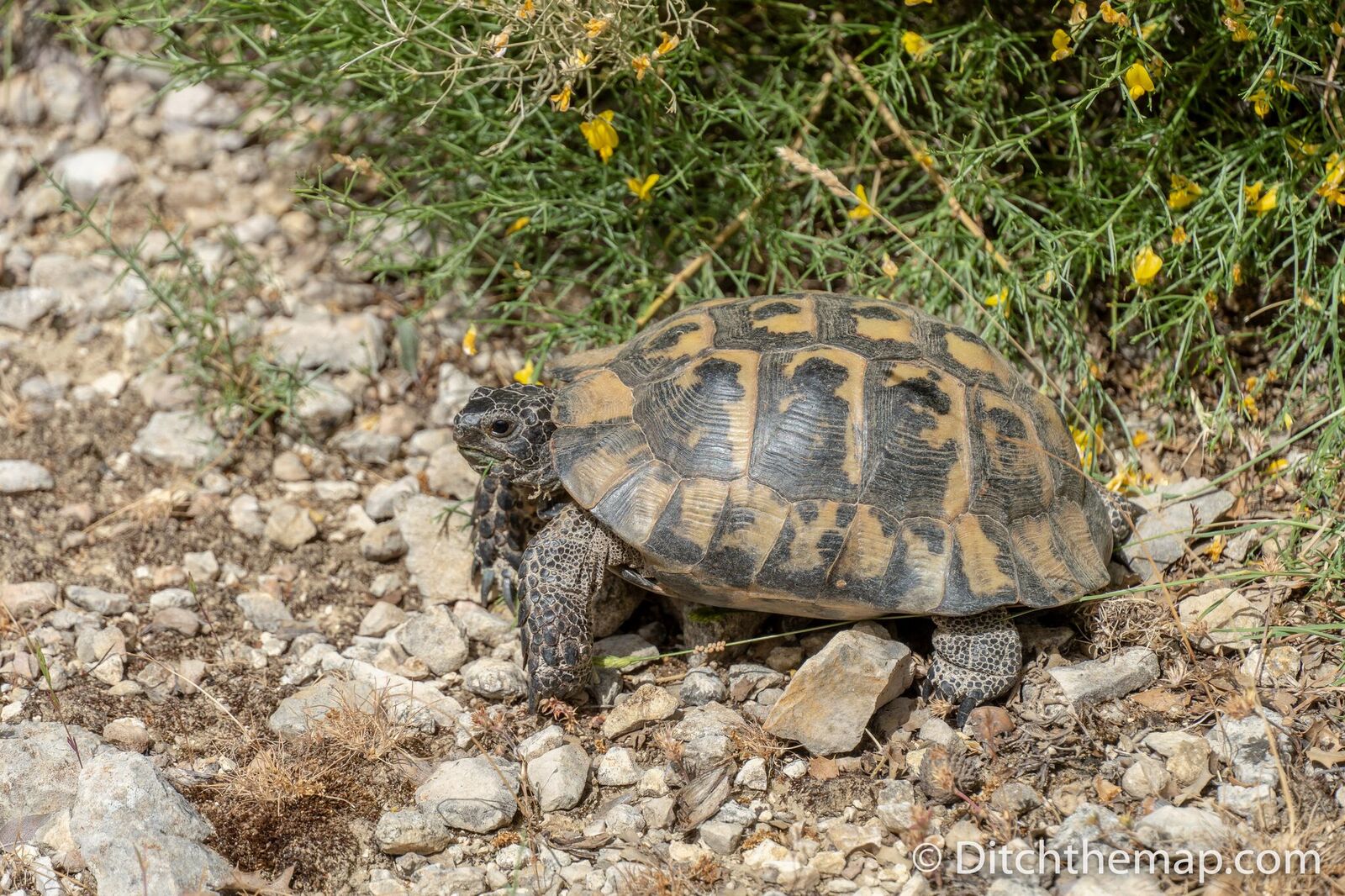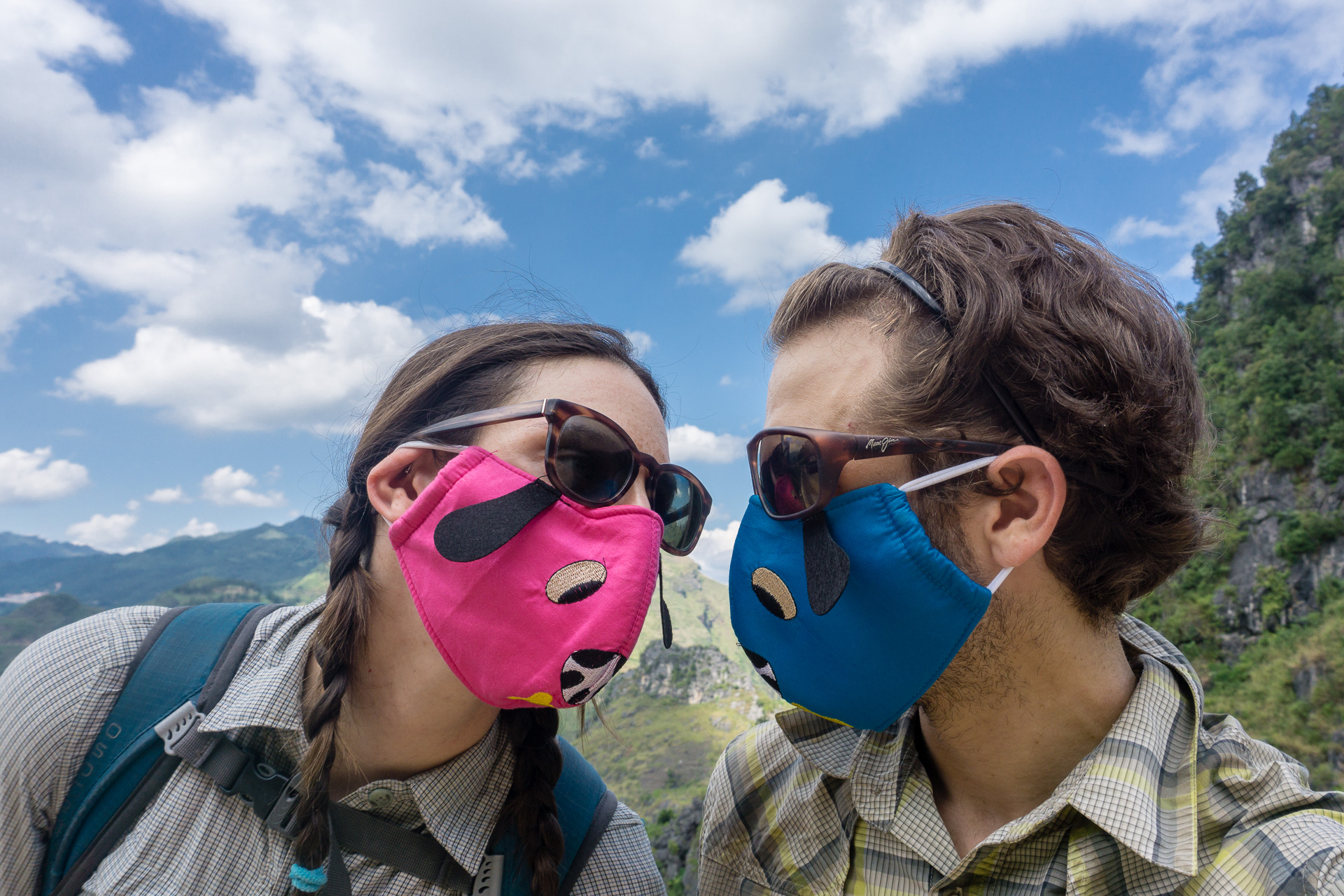Hiking the Lycian Way: Kalkan - Bezirgan - Saribelen
/Day 1
Distance hiked: 8km
Having spent the past month in Kalkan we were ready for some new scenery. This prompted our decision to begin hiking the Lycian Way from the neighboring village of Bezirgan. We crammed into a dolmus (minibus) from Kalkan, wound higher into the hills away from the coast and arrived in Bezirgan 20 minutes later. The tiny village consisted of a few aging stone houses, pensions, market and cafe. The simplicity of the town and buildings gave it a feel of stepping back in time. Bezirgan is a summer yayla – at a higher elevation than Kalkan, it’s where villagers migrate during the hot summers to enjoy the fresh, cool air of the plain. They return to the coast in the winter months.
A view of the village of Bezirgan from the Lycian Way
Shortly after departing the bus we found an official sign for the Likya Yolu, or Lycian Way. Getting a later start than expected, we were eager to get on the trail. We commenced the trek and followed a gravel road lined with fig tress, not quite ripe enough for the picking - darn. We smiled and responded to friendly calls of “merhaba” (hello) from a few villagers, unfazed by the sight of occasional hikers.
Not so friendly were the territorial dogs barking viciously to guard their property. One particularly intimidating dog went so far as to butt his nose up against our backpacks. Hearts racing, we picked up the paced and spoke calmly to each other, hoping the dog would sense that we were not a threat.
The gravel path gave way to two worn tire tracks between tall swaying grass and we left the dogs behind. Hungry goats grazed on the hill beside us. A “modern” goat-herder whizzed by on his motor scooter. He attempted to corral his stubborn herd by honking the horn while driving back and forth.
Officially starting to trek the Lycian Way from Bezirgan
Consumed by the excitement of starting the trek, it took us a while to realize that we hadn’t seen a trail marker for a while…we were not off to a strong start! Backtracking for about twenty minutes, we eventually located the red and white trail marker. It directed us down a long dusty drive way and behind some rustic dwellings.
The trail lead us across a road before snaking up a hill. Goodhearted hikers had added cairns to clarify the way. We climbed uphill along switchbacks and then onto another road. We walked on the pavement in the oppressive heat and lost the trail yet again. Backtracking once more we managed to identify the tricky trail marker pointing toward a downhill scramble. With loose rocks beneath our feet we wove down a hillside. Our legs brushed against thorny bushes and we were grateful to be wearing pants despite the heat.
We popped back out onto a road and opted to stay on the road instead of entering back into the prickly undergrowth. In this remote area, the road was quiet and a welcome alternative to the allusive trail. About two hours after starting the hike, we entered Saribelen, a small farming and goat-herding community. The sight of Saribelen was a relief; we were hot and growing weary of the confusing trail.
Hiking from Bezirgan toward Saribelen on the Lycian Way
We stopped for lunch at Mozaik, the first pension (guesthouse) we crossed in Saribelen, close to the town Mosque. This time of year, in low season, the place looked abandoned. We took a seat on the covered rooftop and relished a cooling breezing. Eventually we peeked our head over the railing to see if anyone was around to help us. A kind couple materialized - an English speaking Turkish woman and her English speaking French husband. Though they weren’t expecting guests (the heat in June keeps many hikers away), they offered to whip us up a meal with what they had available. They joined us at our table as we ate a refreshing meal of salad, homemade bread and beer. They chatted with us and confirmed that the stretch of trail from Bezirgan to Saribelen is treacherous on the downhill stretch and easy to lose.
Homemade advertisement for Mosaik Pension in Saribelen on the Lycian Way
They told us about their life - she went to school in Paris, which is where they met. They lived and worked in various place, preferring small quiet towns they were giving Saribelen a try. In Saribelen they help the owners of the pension and send their 5-year-old son to the school across the street. Our troublesome day felt redeemed by their pleasant company. They talked about the extravagant, out-of-place vacation villas springing in Saribelen. Which, if I understood correctly, are preferred by some religious couples in leu of halal-friendly hotels where pools and beaches are separated by gender.
Before setting out again, we asked the couple if we would pass somewhere selling food for dinner, but they told us that there was nothing between Saribelen and where we anticipated camping. We had no reason to worry however, because the husband immediately offered to drive us a kilometer away to a minimarket. After picking up food for dinner- bread, cheese and snacks - he dropped us off at the trailhead in the direction of Gökçeören, our next destination.
We thanked him for the ride, exited the car and entered a pine forest. The shade provided by the tree coverage was a joyous reprieve from the heat. We coursed up and down ebbing hills on soft pine covered ground and passed smooth, layered rocks. A noisy herd of goats and an ambling tortoise crossed our path.
Windswept rocks on the Lycian Way between Saribelen and Gokceoren
A tortoise crosses the trail on the Lycian Way
From the top of a hill we spotted a grassy clearing, the perfect place to call home for the evening. After a persistent stretch of up-and-downhill terrain, the flat patch felt like a consolation for our efforts. We set up our tent tucked away between trees and stones. We changed into clean clothing, perched on nearby rocks to eat our dinner, and reflected that in spite of a rough start, our day had really turned around.
An inviting grassy clearing on the Lycian Way between Saribelen and Gökçeören
Our camping spot between the villages of Saribelen and Gökçeören



